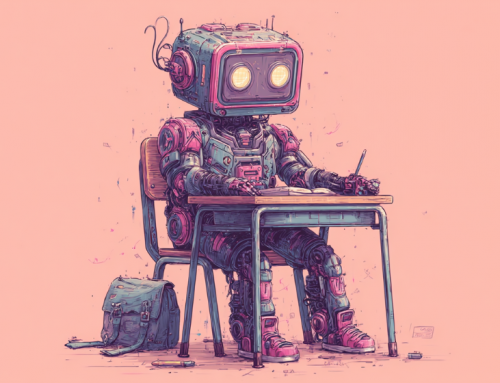
AI is using supply chain data to help reduce grocery store waste by analyzing sales and tracking goods.
German AI Project Aimed at Reducing Food Waste by Tracking Data
They threw away 12 million tons of food. It’s such a waste, literally and figuratively, and that’s just in Germany alone.
We found this startling piece of information at a site called techxplore.com. The use of a multitude of algorithms just might be part of the answer to cutting the amount of food wasted around the world. A group of German researchers believes it’s time to turn production schedules and ordering over to AI and let the algorithms work their magic.
The German study the article cited was funded to the tune of 10 million Euros. With 30 partners committed to the use of AI, it’s going to be used in a variety of ways. From picking the product from the field to sorting, counting, and using the data of the algorithms, they will tighten up the entire process of feeding 7 billion people each and every day.
In the Resource-efficient Intelligent Foodchain (“REIF”) project, the Fraunhofer Institute for Casting, Composite and Processing Technology IGCV is working with partners to combat this food waste. In this undertaking, artificial intelligence can be a valuable asset. Cheese, bread, meat and other food products can be efficiently produced using data-based algorithms.
Minimizing overproduction and avoiding waste
“Two aspects are key to significantly reducing food losses in these sectors—minimizing overproduction and avoiding waste,” explains Patrick Zimmerman, a scientist at Fraunhofer IGCV and member of the consortium.
Germany has committed to the United Nations goal to reduce food waste by half by the year 2030. Reports say 50% of waste comes from common domestic households. Could we all do better in our own homes and learn how to not waste food here in America?
“We apply AI to the entire value chain, especially in the production facilities. To do that, we adapt and select the algorithms that are suitable for the respective application,” explains Zimmerman. We look at the predictability and controllability in all areas—from production on the farm to sale in the supermarket—to optimize their potential. “Overproduction and waste can be avoided by making targeted forecasts on food requirements, improving the predictability and controllability of the value creation pro-cesses and reducing quality-related food loss,” adds Theumer.
The ultimate goal of the REIF project is to develop a virtual marketplace that shares data in real-time with the members.
Ultimately, production companies can better control manufacturing by using sales figures and forecasts. The data collected by supermarkets will be included in the forecasts. A range of factors used in crunching the data, like customer behavior, inventory levels and expiration dates, will help them to make dynamic price adjustments on products in supermarkets.
“The continuous, daily price adjustment will avoid the drastic price slashing we are used to seeing shortly before the expiry date and prolong the selling time. Consequently, a product is more likely to be bought before it’s passed for disposal and the overall profit also increases,” says Zimmermann, explaining the principle of dynamic price adjustment.
With the REIF algorithms being introduced to supply chains and now that blockchain tech finally growing into perhaps the most useful data tool for any business worldwide, the technology can be used to keep track of every tomato produced, where it is currently, and when will it arrive at the restaurant or grocer. It will all lead to a drastic reduction in waste, and the cost of feeding 7 billion people every day.
read more at techxplore.com







Leave A Comment